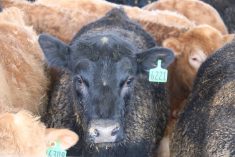A project to monitor antimicrobial resistance in beef feedlots recently received funding.
The Beef Farmers of Ontario (BFO) welcomed the investment of up to $294,314 through the Canadian Agricultural Partnership to conduct new research on the “National Surveillance of Antimicrobial Use and Antimicrobial Resistance in Ontario Feedlot Cattle”.
“Collecting antimicrobial use (AMU) and antimicrobial resistance (AMR) data from feedlots located in Ontario and other major fed cattle producing provinces, will fill a current gap in our national surveillance program,” says BFO President Joe Hill.
“There is a growing expectation that countries quantify antimicrobial use in food animal production. Monitoring and measuring antimicrobial use and resistance helps demonstrate responsible use, and only with responsible use can these products continue to be employed for food animal production.”
Read Also

Melancthon faces a new quarry fight over water, environment and farmland risks
A proposed Strada blast quarry in Melancthon, Ont., sparks regional debate over water protection, farmland sustainability, and Ontario’s aggregate policy.
AMR and AMU have been a growing concern worldwide. To address the concern nationally, the Public Health Agency of Canada’s Canadian Integrated Program for Antimicrobial Resistance Surveillance monitors trends in AMU and AMR in selected bacterial organisms for human, animal and food sources.
The goal of this research is to capture antimicrobial use data in cattle on feedlot operations, and to detect changing trends in use and resistance over time. This national surveillance system is expected to provide data that demonstrates responsible antimicrobial use in the Canadian feedlot sector, which will contribute to improved animal health and the continued effectiveness of antimicrobials for cattle and will assist in communication efforts aimed at maintaining a high level of antimicrobial stewardship among feedlot producers.














